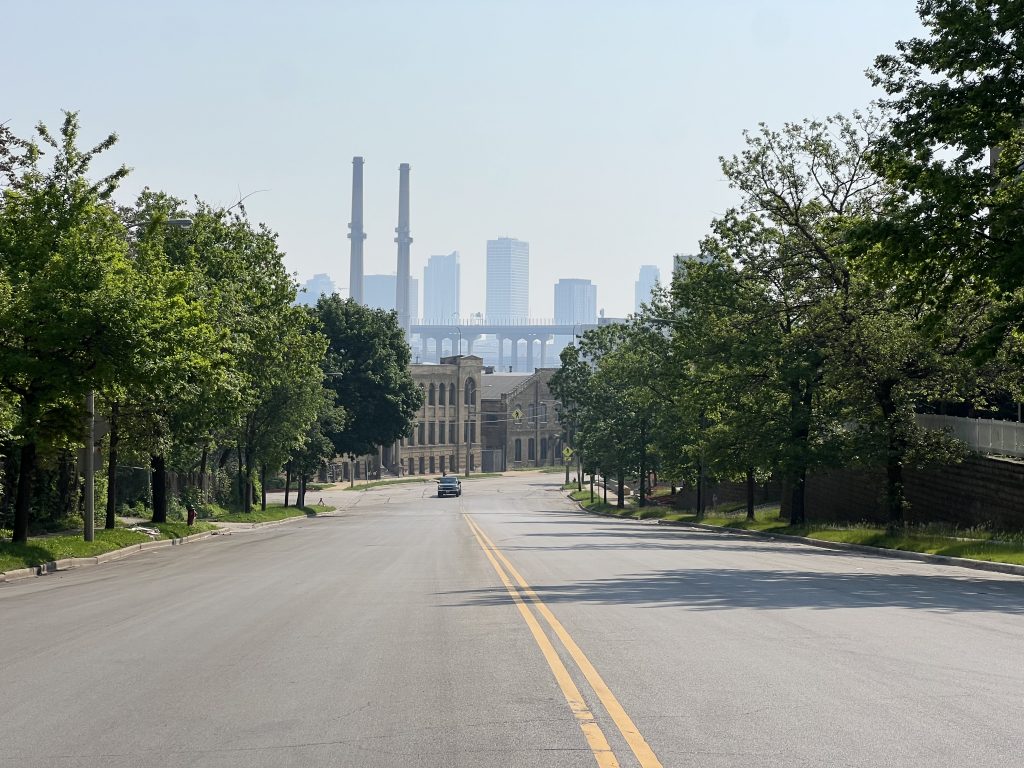Tracking Small Air Pollution Particles Across the U.S.
All the city news you can use.
Every day at The Overhead Wire we sort through over 1,500 news items about cities and share the best ones with our email list. Each week, we take some of the most popular stories and share them with Urban Milwaukee readers. They are national (or international) links, sometimes entertaining and sometimes absurd, but hopefully useful.
Not enough factory workers: For every open factory position in the United States there’s only one qualified candidate according to the Bureau of Labor Statistics. The scarcity of skilled blue collar workers is the biggest problem for employers and the number of young people going to vocational schools and community colleges is dropping. The problem is likely to become worse as job training is cut and as the Trump administration targets working immigrants. (Farah Stockman | New York Times)
LA bus ridership drops: LA Metro has seen a 10-15% drop in transit ridership since ICE began taking people off the streets. Many immigrants, including those legally in the country, fear going out in public and using transit as the possibility of them being taken rises. Housing and transit advocates have asked Metro to protect riders as they go to jobs from the raids. (Christopher Buchanan, Colleen Shalby and Hannah Fry | Los Angeles Times)
Studying micropollution: Researchers at Washington University in St. Louis are the first to have constructed a dataset of PM1 pollution concentrations that come from wildfire smoke and diesel engines. PM1 pollution, smaller than PM 2.5, could cause more health problems because of how tiny they are and their ability to evade our bodies defenses. The new data allows researchers to look into health impacts where limited studies have existed in the past. (Leah Shaffer | Washington University St. Louis)
Reversible architecture: Many buildings are constructed to last a long time, but what if we built only for immediate needs and were able to deconstruct and repurpose. That’s the idea behind reversible architecture, a way of reimagining buildings as systems of building layers structural and mechanical. As our thinking about sustainable design evolves, architecture could adapt in ways that allow more responsiveness and less rigidity. (Enrique Tovar | ArchDaily)
Managing big event congestion: TTC is considering reducing transit fares and increasing parking charges during special events to reduce congestion. The move is part of a new strategic parking framework that is heading to Toronto City Council soon. The hoped for change would encourage people to take mass transit to events instead of driving and using finite road space. (Becky Robertson | blogTO)
Quote of the Week
We were aware of various studies that have been conducted regarding heat inside the [bus] shelters. So, we wanted to address this quickly. Our chair really issued the call to come up with a concept that could provide some relief sooner rather than later.
–Kenneth Brown, Houston METRO’s director of service enhancements in Houston Public Media, discussing lowering bus shelter temperatures.
This week on the Talking Headways podcast, we’re joined by Ross Peterson to talk about non emergency medical transportation and his new wheelchair accessible transportation company RIDEtoo. We talk about transportation funding for medical visits and how they can be more efficient.
Want more links to read? Visit The Overhead Wire and signup.
If you think stories like this are important, become a member of Urban Milwaukee and help support real, independent journalism. Plus you get some cool added benefits.
Urban Reads
-
Congestion Pricing Cuts Air Pollution in New York City
 Dec 14th, 2025 by Jeff Wood
Dec 14th, 2025 by Jeff Wood
-
We Think We Love to Drive. But Do We Really?
 Dec 7th, 2025 by Jeff Wood
Dec 7th, 2025 by Jeff Wood
-
Can Scott Wiener Tackle America’s Housing Crisis?
 Nov 23rd, 2025 by Jeff Wood
Nov 23rd, 2025 by Jeff Wood






















